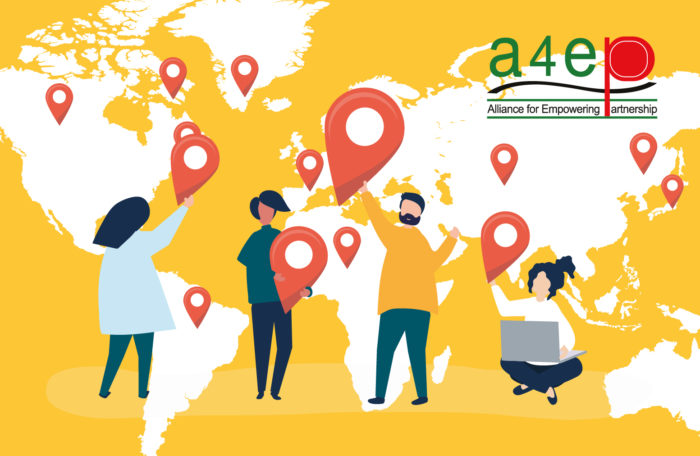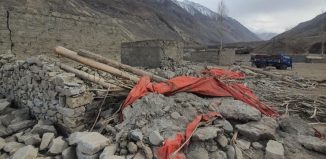Solidarity and Diversity – Is there a crisis of solidarity? Have we lost our way?
When: September 29, 2020
What time: 11 AM (Geneva, Switzerland time)
Where: ZOOM – Link will be shared with registered participants
Language: English
How long: 90 minutes
Who is it for: Humanitarian and development practitioners committed to the dream of Localisation all over the world, academics and donors
Format: Presentation & Discussion
| Purpose |
Background: International Humanitarian response is a show of solidarity towards the populations affected by crisis. The International humanitarian aid is made available out of a fundamental recognition of shared humanity and solidarity.
There are small and large humanitarian disasters all around the world. Normally, it is the local authorities working together with Civil Society actors and the citizens who show solidarity and are the first and longer-term responders to those disasters. Local solidarity continues to be expressed in times of crisis as a seemingly innate response to human suffering. This was true in the Nepal Earthquake, in response to the influx of Rohingya refugees in Bangladesh, the grassroots organisations to response to refugee crisis in Greece, France, Italy and Germany, The White Helmets in Syria, Proactiva Open Arms in the Mediterranean, the Women of Las Patronas in Mexico, those who are running food banks in the UK, US and other parts of the world during Covid 19 response. All these are true embodiments of the ‘essence of humanitarianism’ in everyday acts. However, what is particularly problematic is “the way in which grassroots expressions of solidarity are pressed to better align with the ‘Professional’ humanitarian’s unique interpretation of humanity and solidarity.”
The Anti-racism protests across the globe, led by the Black Lives Matter movement and others, has put a spotlight on deeply ingrained historic and systemic racist attitudes and racial discrimination that deny people their fundamental human rights. It has –finally created the opening to speak about racism and attitudes of colonialist superiority also in the ‘humanitarian’ sector. We need to work in solidarity to tackle inequality and injustice, not only in the society around us, but also in our own ‘aid sector’.
The webinar will help to explore:
- How is humanitarian solidarity expressed?
- What attitudes and behaviours show solidarity?
- What lessons have we learned about solidarity during Covid-19 crisis?
- What impact does the recent discourse on racism and de-colonisation of aid have on solidarity?
What is the way forward?
| Speaker(s): |
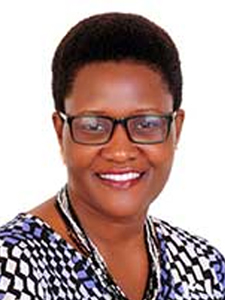 Mrs. Ritah Nansereko
Mrs. Ritah Nansereko
Ritah Nansereko, Is a teacher by profession but also studied Human Rights at Masters, plus postgraduate studies in leadership. She is a Human Rights Advocate, and currently serves as the Executive Director of a local humanitarian organization- African Women and Youth Action for Development- AWYAD, based in Uganda. She is the Chairperson for Charter4Change Working Group in Uganda and a member for the African NGO Council which is hosted in Sierra Leone, and a member of the steering committee of the National Humanitarian Platform.
Ritah has over 8 years of experience in responding to humanitarian crises, particularly the safety and protection needs of refugee women and Children, as well as victims of massive land evictions. During her career, she has worked on a number of successful campaigns at both national and regional level. For example the campaign against land grabbing and massive land evictions in Uganda, the campaign on the regulation of GMOs in Uganda, the campaign to include Local Governments in refugee planning and response, to mention a few. She will be leading the discussions.
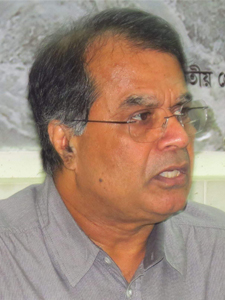 M Rezaul Karim Chowdhury
M Rezaul Karim Chowdhury
Rezaul Karim Chowdhury is leading “COAST “(www.coastbd.net), a CSO working for coastal poor in Bangladesh. COAST is the first Asian organization to receive HQAI (www.hqai.org) certificate on quality management and accountability. He was also on the board of different international bodies; at present he represents humanitarian organization from southern countries on IASC – OPAG (Inter Agency Standing Committee- Operational Policy and Advocacy Group). He participated in the Principles of Partnership (PoP), Grand Bargain (GB) and Charter 4 Change (C4C) discourse. He leads along with others the localization mobilization in Bangladesh through Bd cso process (www.bd-cso-ngo.net) and in Rohingya Response through CCNF (www.cxb-cso-ngo.org). He is also part of international conveners’ committee of A4EP (Alliance for Empowering Partnership, www.a4ep.net). He believes in complementarity and inclusiveness in the CSO sector. He also believes that UN agencies should provide more robust technical assistance, support and promote of local CSO development.
 Regina “Nanette” Salvador-Antequisa
Regina “Nanette” Salvador-Antequisa
Regina “Nanette” Salvador-Antequisa is the founding Executive Director of Ecosystems Work for Essential Benefits, Inc. (ECOWEB) and convenor of the Community Led Emergency Action Response Network (CLEARNet) in the Philippines that actively promotes survivor and community-led response (SCLR) to crisis approach – a humanitarian-development-peace nexus advocacy in action. She has been in peace and development work for over 25 years and engaged in local and national policy advocacy on the issues of disaster, poverty, conflict, environment and governance.
She is actively involved in international advocacy on localisation of humanitarian aid through her engagement with Charter4Change, Local to Global Protection and participation in the World Humanitarian Action Forum. She is the chair of global Alliance for Empowering Partnership (A4EP).
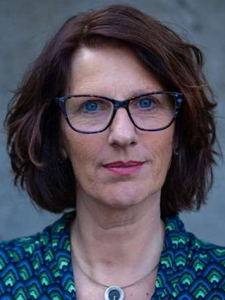 Dorothea Hilhorst
Dorothea Hilhorst
Dorothea Hilhorst is a professor of humanitarian studies at the International Institute for Social Studies (ISS) of Erasmus University in The Hague. Her focus is on aid-society relations: studying how aid is embedded in the context. She has a special interest in the intersections of humanitarianism with development, peacebuilding and gender-relations. Her latest research programme aims to understand changes in humanitarian governance in relation to localisation and resilience, and to reform humanitarian studies towards equal partnerships and participatory methodologies. Email: hilhorst@iss.nl Twitter: @hilhorst_thea
| To register for the webinar, please click on this link: Solidarity and Diversity |





